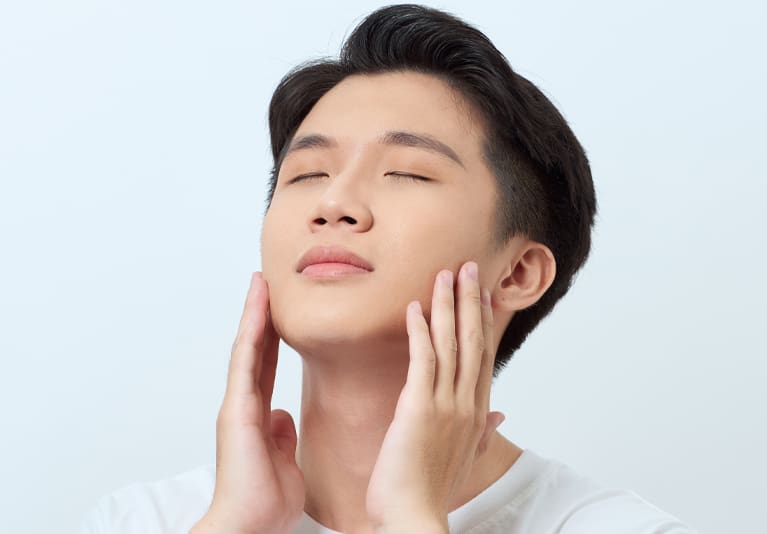Face by Mr Ioannis Goutos
Teeth grinding

Teeth grinding, medically referred to as ‘bruxism’, is a phenomenon seen in many individuals. It is most commonly related to stress or anxiety and usually occurs at night during sleep, although it can also be seen during the day in some individuals.
Teeth grinding can also be associated with other sleep-related problems, such as snoring or sleep apnoea (problems with breathing during sleep). Occasionally, certain medications, including some anti-depressants, can cause teeth grinding. This can also be seen in individuals who smoke or have a high intake of alcohol, caffeine or recreational drugs.
The symptoms associated with teeth grinding can range from mild and minor aches to severe and debilitating issues. Unfortunately, teeth grinding and clenching over time can result in a number of troublesome problems, which can have long term effects on a person’s physical and mental wellbeing. These include:
- Mechanical damage and wearing to the teeth (which can in turn can cause problems with oral hygiene and being able to eat)
- Toothache
- Poor sleep
- Severe facial, jaw or neck pain
- Problems with the joints of the jaw (known as temporomandibular joint disorder)
- Earache
- Chronic headaches or migraines
- Widening in the appearance of the lower face due to an increase in the size of the jaw muscles
Book your consultation today
Book nowAbout this condition
If teeth grinding is causing any damage of pain related to the teeth, it is recommended to seek prompt dental assessment and treatment. Sometimes a mouthguard can be worn at night, or at times of known teeth grinding, to reduce any wearing down of the teeth themselves.
Other treatments for teeth grinding include relaxation techniques to reduce any stress of anxiety, which may trigger teeth grinding. Improving the quality of sleep with good sleep hygiene and routine and addressing any other sleep-related problems can also help with some of the symptoms. Painkillers and ice packs can help with any immediate pain or swelling. Reducing the intake of caffeine and alcohol, and either quitting or cutting down on smoking, can reduce the intensity and frequency of teeth grinding to offer symptom relief.
In some cases, muscle relaxing injections can help to relieve many of the symptoms associated with teeth grinding. The injections contain a concentrated protein, which targets the muscles of the jaw and helps to reduce the activity of the muscles that are causing teeth grinding. Over time this can also help the muscles to get smaller and restore the original contour of the jawline. These injections can be effective for several months at a time, and if effective, can be repeated for prolonged symptom relief.
Mr Ioannis Goutos is a top plastic surgeon, with extensive experience in delivering a number of surgical and non-surgical treatments. He is able to carry out thorough assessments and create tailored treatment plans for you based your symptoms and medical background.

Testimonials
Mr Goutos is delighted to share some of his patient and peer feedback on their experiences of his services.









